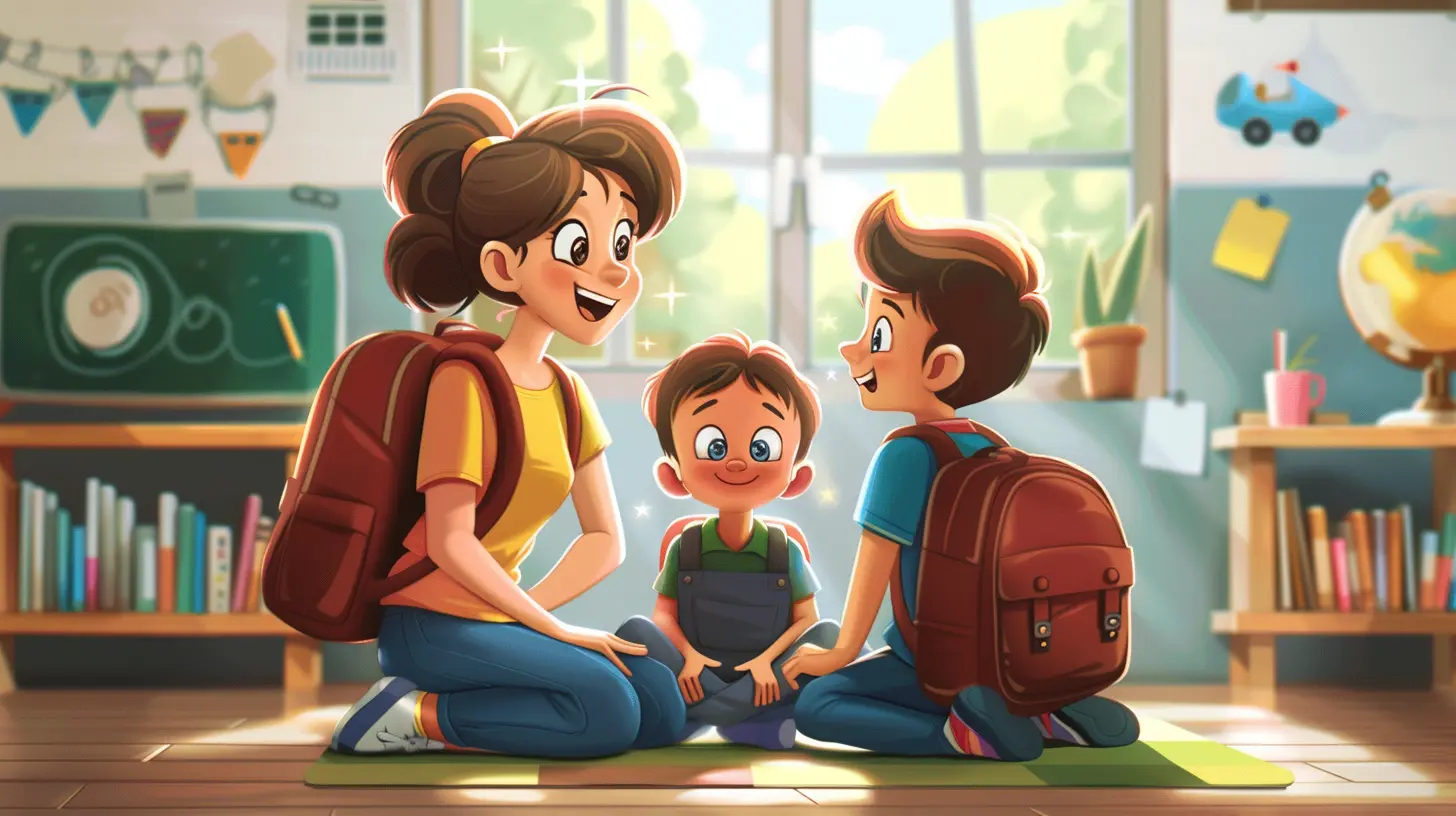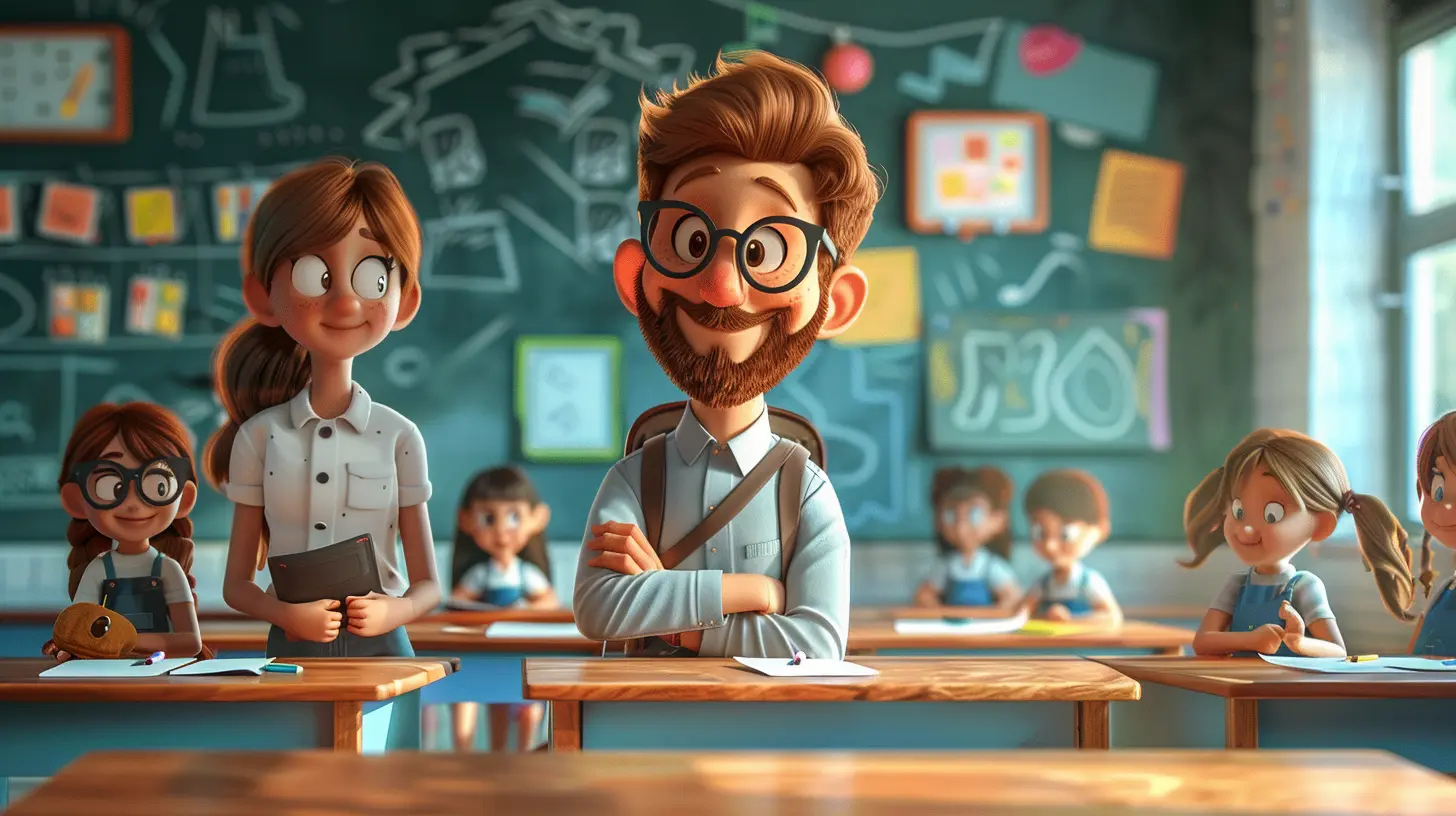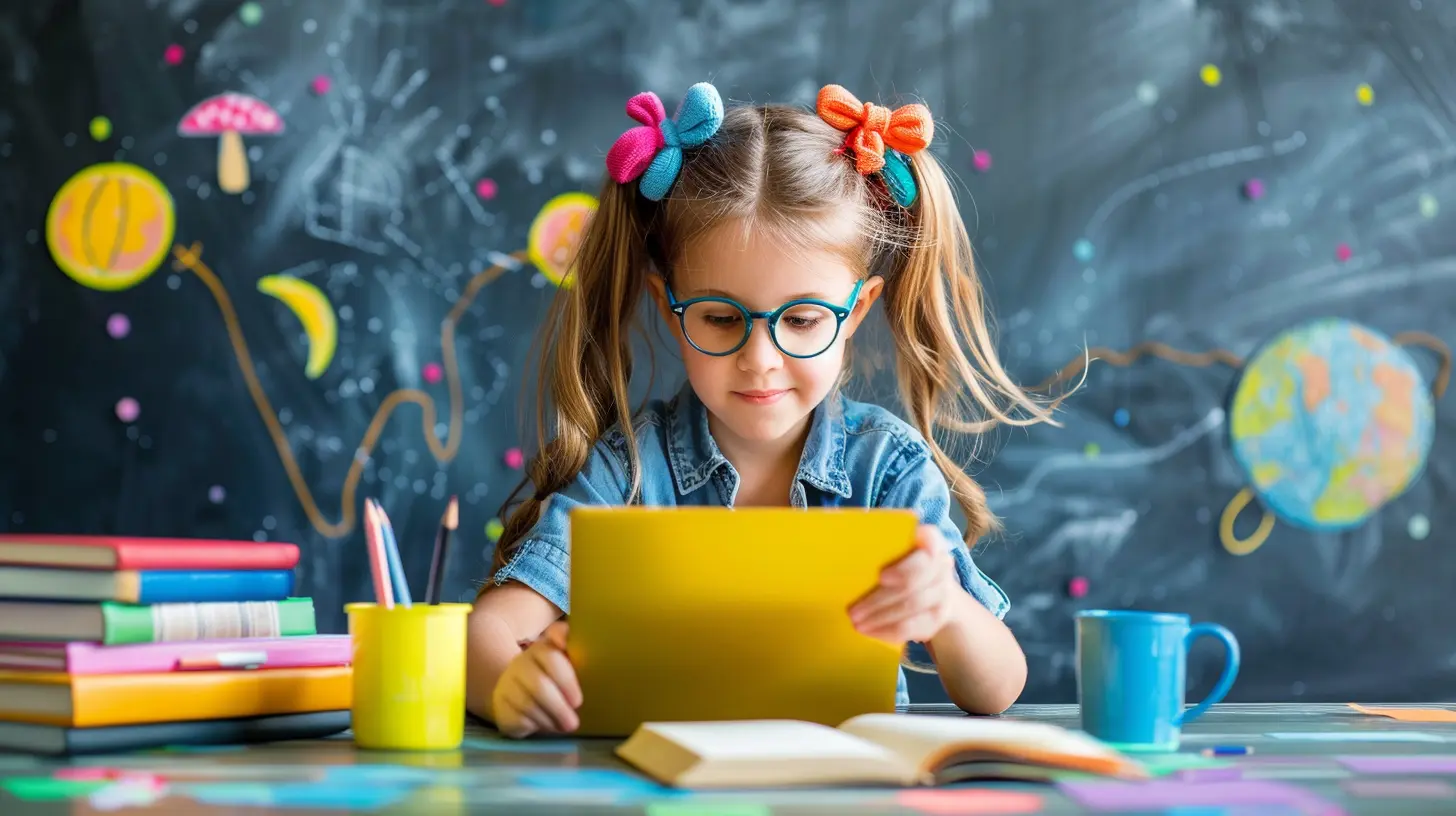11 April 2025
In today's fast-paced, digital world, there's almost no escaping technology. From tablets to laptops and even smart boards in classrooms, tech seems to be everywhere. But while technology offers tons of benefits, there are still plenty of valuable, tried-and-true methods – that don’t involve screens – for preparing kids for school. Believe it or not, stepping away from the devices can sometimes do wonders for child development.
So, how exactly do you get your kids ready for school without relying on technology? Let’s dive into some fun, effective, and technology-free ways that you can prep your little ones for a successful school year. Trust me, your child will be more than ready to tackle whatever school throws their way!
Why Limit Technology for School Prep?
Before we dive into these strategies, why should we even consider limiting technology in the first place?Well, let’s be honest – kids are already spending a TON of time in front of screens. Whether they’re watching YouTube, playing video games, or attending online classes, screen time adds up quickly. But too much of it can lead to problems like reduced attention spans, sleep difficulties, and even social isolation. That’s why it's important to balance all that screen time with offline activities that stimulate creativity, encourage learning, and foster emotional intelligence.
Plus, let’s not forget that the skills kids learn from offline activities often translate perfectly into the classroom environment. Whether it’s developing fine motor skills, communication, or teamwork, these non-tech methods are golden. Now, let’s get into the fun stuff!
1. Reading Together: The Old-School Classic
There’s nothing quite like snuggling up with a good book – and it’s one of the best ways to get your kids school-ready. Not only does reading build vocabulary, but it also strengthens listening and comprehension skills, which are essential in the classroom.You can start with picture books for younger kids and slowly transition to chapter books as they grow older. Mix it up! Read about everything from pirates to princesses, from real-life explorers to imaginary lands. The key is to keep it fun. When kids see reading as a joyful experience, they’re more likely to develop a lifelong love for books – and that can work wonders in school.
How to Make It Even More Fun:
- Interactive Reading: Ask questions as you read, such as “What do you think will happen next?” or “Why do you think the character did that?” This keeps your child engaged and boosts critical thinking.- Act It Out: Take a scene from the book and role-play it with your child. Acting taps into their imagination and deepens their connection to the story.

2. Playtime That Prepares for the Classroom
Play is a child’s natural way of learning. Best of all, there are plenty of technology-free games that secretly teach essential school skills – without feeling like "work."Some Ideas for Educational Play:
- Puzzles: These build problem-solving and fine motor skills. Start with simple jigsaw puzzles and work your way up as your child gains confidence.- Board Games: Games like "Candyland" or "Chutes and Ladders" teach patience, taking turns, and following instructions. Plus, they sneak in some basic math!
- Play Store: Set up a mock store in your living room. Your child can practice counting and making change, learn about different items, and even develop conversation skills by "interacting" with customers (you).
Not only do these types of play help your child learn essential skills, but they also bolster creativity and social skills. And we all know that creativity and teamwork are just as important in the classroom as math or handwriting!
3. Fostering Independence Through Routines
Let’s be real – school requires a certain level of independence. Teachers can't hand-hold every child through the day. By teaching your kids to be independent now, you’re giving them a huge head start for the school environment.One fantastic way to do this is by establishing routines. When kids know what to expect and understand their responsibilities, they feel empowered. Whether it’s getting dressed on their own, packing their own lunch, or managing their time effectively (hello, morning alarm clocks!), routines are a powerful tool for building responsibility.
Some Useful Routine Ideas:
- Morning and Bedtime Routines: Create charts that lay out the steps for getting ready in the morning (getting dressed, brushing teeth, packing a bag) or for bedtime (bath, pajamas, reading).- Chore Charts: Assign simple chores that your children can complete on their own, like setting the table or feeding a pet. This teaches responsibility and time management.
4. Handwriting Practice: The Forgotten Skill
In the age of tablets and keyboards, handwriting is often overlooked. But here's the thing – handwriting remains a crucial skill, especially for young learners. Whether it’s writing their name, forming letters, or even doodling, proper handwriting practice helps with motor skills and cognitive development.Ways to Make Handwriting Fun:
- Doodle Challenges: Give your child a theme and ask them to doodle something related. It could be their favorite animal, superhero, or even a made-up character.- Write Letters: Encourage your child to write letters to family members, even if it’s just a few sentences or some scribbles. It’s a way to practice writing without making it feel like "work."
- Use Chalk or Playdough: Practicing letters isn’t only done with pencil and paper! Get creative by having them trace letters in the sand or mold them with playdough.
5. Building Social Skills Through Interaction
School isn’t just about academics; it’s also a social environment. Kids need to know how to take turns, share, and communicate effectively with others.How to Build Social Skills:
- Playdates: Arranging regular playdates is a great way for kids to interact with peers their age. This is where they can practice sharing, resolving conflicts, and cooperating in group settings.- Role-Playing: Practice common social scenarios with your child, like introducing themselves or asking to play with a toy politely. It's a fun way to drum up those conversation skills and make them feel confident in social situations.
- Family Game Nights: Games that involve multiple players help teach cooperation and patience, all while giving your family quality bonding time.
6. Getting Outside: Exploring Nature for Lifelong Learning
Believe it or not, kids learn a lot just by stepping outside and interacting with the world around them. Going on nature walks, visiting parks, or even exploring the backyard can be educational.Whether it's identifying different types of trees, watching ants hard at work, or chasing butterflies, nature stimulates curiosity like nothing else!
Fun Outdoor Activities:
- Scavenger Hunts: Create a list of things to find in your neighborhood or backyard (like different leaves, insects, or rocks). Your child can hunt for these objects while learning about the environment.- Gardening: Allow them to plant seeds and care for the garden. It teaches patience, responsibility, and a bit of biology!
- Stargazing: On a calm evening, look up at the sky and find constellations or talk about the moon and stars. It’s a magical way to explore science without needing a textbook.
7. Cooking Together: A Recipe for Learning
Believe it or not, cooking is an excellent way to sneak in a bit of math, science, and organization. Measuring ingredients helps with basic math skills. Watching dough rise or ice melt is a mini science experiment in itself. And following steps in a recipe teaches attention to detail and sequencing.Fun Ways to Get Your Child in the Kitchen:
- Baking Cookies: Kids love cookies, and they love helping in the kitchen. Have them measure ingredients, mix the dough, and set the timer.- Simple Sandwich Creations: Let them design their own sandwiches with various ingredients. It helps with decision-making and fosters creativity.
- Meal Prepping Together: Teach them simple tasks like peeling vegetables or stirring a pot. These tasks build fine motor skills and confidence in the kitchen.
8. Mindfulness and Focus Activities
Kids these days often suffer from a lack of focus, thanks in part to information overload. Practicing mindfulness can help your little ones become more aware and better able to control their emotions and thoughts. Trust me – packed classrooms and busy school schedules call for a touch of zen from time to time.Easy Mindfulness Activities:
- Deep Breathing Exercises: Teach your child to take deep breaths in challenging situations. It’s a quick way to calm down.- Yoga for Kids: Simple yoga poses can help improve flexibility and concentration.
- Gratitude Journals: Encourage your kids to write down one thing they're thankful for every day. Gratitude fosters a positive mindset and gives them an opportunity to reflect.
Final Thoughts
Tech has its place, but it’s important to remember that technology isn’t the only way to prepare your kids for school. From reading and playing to building social skills and independence, there are countless hands-on, meaningful activities that can help your little ones thrive in and out of the classroom.And the best part? These activities don’t just foster academic success; they nurture well-rounded, creative, and emotionally intelligent kids. So next time you’re thinking about reaching for a tablet, maybe try one of these tech-free strategies instead. You might be surprised at how much fun it can be!





Maya Morris
This article offers valuable insights into preparing children for school without relying on technology. Engaging in hands-on activities fosters creativity and social skills, while emphasizing the importance of routines can enhance their readiness. By promoting direct interaction, parents can nurture resilience and boost confidence in school settings.
April 19, 2025 at 4:46 PM